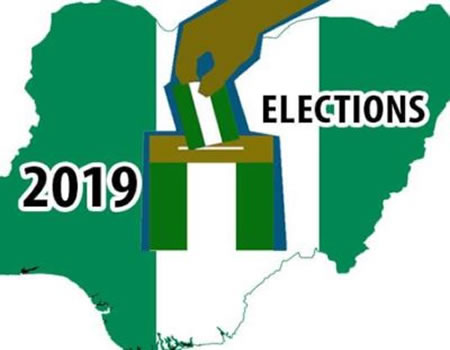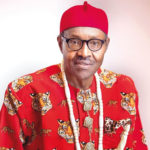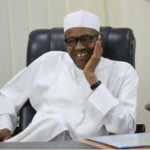Politicians and political parties have always deployed political advertising across various media platforms (radio, television, outdoor, newspapers, magazines, online, posters etc) to sell their candidature and party manifestoes. The political advertising campaign messages presents the parties and their candidates opportunities to inform and educate the electorates of their plans for the people if voted into power. If creatively done, such advertising campaigns also entertain and provide amusement for the citizens, and help to increase what advertising practitioners refer to as ‘Top of mind awareness’ (TOMA) for the party candidates, their political parties and manifestoes amongst the populace.
Atiku’s victory now unstoppable ― Saraki
The themes and issues creatively discussed in the messages become topics for discussions at restaurants and bars, newspaper vendors’ joints, inside commuter buses, online, at social gatherings and in other places where Nigerians congregate. I started following political advertising campaigns as an undergraduate at The Communication Arts Department of University of Uyo. This fascination influenced the choice of my final year project topic; ‘Comparative Analysis of SDP and NRC political advertising campaigns in the 1993 Presidential Elections’.
My research took me to Biodun Shobanjo’s Insight Communications in Lagos which had managed the NRC (National Republican Convention) political advertising account, and also to late May Nzeribe’s Sunrise D’Arcy offices in Lagos. They managed the SDP (Social Democratic Party) account. It was at Sunrise that I met the baritone voiced master compere Chido Obidiegwu for the first time as he was account manager on the SDP account.
Those who can still remember the heated campaigns ofNRC and SDP in the 90s, as well as the efforts of their presidential candidates Bashir Tofa (NRC) and M.K.O Abiola (SDP) will admit that the two agencies gave their best in both copy and deployment of imagery to sell the parties and their candidates to Nigerians.
The agencies and by default the two major political parties went for each other’s jugular with their daily press advertisements which touched on social and economic issues that bothered Nigerians during this time. Any new advert by any of the parties is countered with a funnier and more piercing one the next day by the other party.
Unfortunately, we can not say the same of the major political parties in this year’s Nigeria general elections. Days to the 2019 general elections, we have not seen anything creative and exciting from the camps of the major political gladiators. All we have been seeing are the traditional candidates’ posters showing their mug shots and a few listing of objectives. No jabs, no Jibes, just dull, lifeless and dour posters turned into press political advertisements.
What could be responsible for this? Dearth of creativity in the Nigerian advertising space? I don’t think so. Lack of ‘mud’ or ‘dirty’ materials to throw at the opponent? I don’t think so either. Bond Mbah however has a different view.
He says that “the two major political parties know that they have lots of dirty linen and are both afraid to cast the first stone, for fear of a worse reprisal attack”. Chidi Onwumere asks, “Are agencies actually engaged for political campaigns in the 2019 elections? The answer is a resounding no. Engaging a printing company and other quacks to produce posters and other communication materials for campaign remains the greatest challenge”.
Chidi may be right. Unlike in the past, there has not been any report in the media of any of Nigeria’s branding and advertising agencies being engaged or signing multi-million naira deals to manage the advertising campaigns of any of the major parties. It has been thus far commercial printers and other sundry operators having a field day.
Austin Onwubiko shares this view and concludes that “none of the political parties or candidates have engaged professionals. Maybe we can attribute this to economic considerations because of cash crunch”, Austin concludes. Another commentator Nneka Ekwunife says that “social media has taken the shine off the conventional media in the 2019 political advertising campaigns”.
According to her, “everything these days are done and seen on the social media.” Nkemakonam Orakwe echoes similar thoughts as Nneka, for him, “most of the dirty jobs are done online these days to avoid tracing the jibes and sometimes derogatory words used during campaigns to a particular candidate or political party”.
Continuing, he says that traditional advertising is about to go into extinction as it is considered to be more expensive and traceable. If you want to read what major parties are churning out against their opponents, follow BMC or AMC links”.
Ken Eneremadu agrees that “2019 political advertising campaign messages are vague, dry, boring, and lack strategy”. He says that the political parties and candidates must have engaged quarks or may have resorted to do-it-yourself (DIY)”.
This situation perhaps made celebrated brand strategist Charles O’Tudor to describe the quality of creativity in this year’s political campaigns as “cerebral reductionism”. As we enter the finale and last days of the 2019 general election campaigns, are there hopes that we will still witness exciting political advertising campaigns? Can the major political parties and their candidates conjure some kind of advertising magic in a last minute effort to woo voters? Time will tell.
It cannot be as a result of lack of materials to use. Social media and the internet are littered with ‘mud’ to use to pep up the political advertising of the parties. The President’s wife Aisha Buhari once detonated a huge bomb alleging the existence of a cabal in the APC federal government, The Academic Staff Union of Universities (ASUU) is still on strike, Halliburton matter is a google click away. Infrastructure is still a major challenge in Nigeria, a country that has now been declared the poverty capital of the world.
Unemployment and corruption, poverty, insecurity and so on are still some of the major issues bothering Nigerians. In fact, there are are so many materials out there that could be used for this year’s electioneering campaigns but no, the parties and their candidates are not yet scratching the surface and that’s really a shame, a big one.
Nworah, an advertising and branding scholar writes in from Awka, Anambra State, via uchenworah@yahoo.com.






